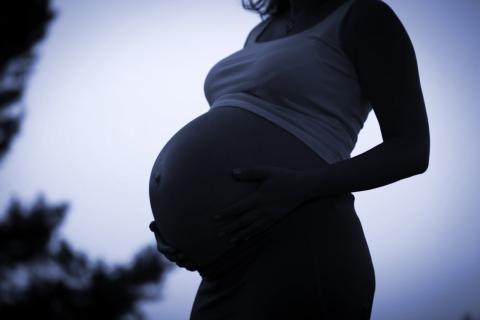
Credit: PixAChi / YayImages.com
Climate Change: The New Threat to Reproductive Health
Recent research conducted by the Journal of Women's Health has presented alarming new evidence that environmental toxicants can have a detrimental effect on fetal health. The findings suggest that exposure to environmental toxins contributing to climate change from sources such as air pollution is directly linked to increased risks of pregnancy-related illnesses and death.
Global Warming: Effects on Reproductive Health
Global warming is a major environmental issue with far-reaching consequences, yet the effect on reproductive health often goes unrecognized. As temperatures continue to rise due to climate change, they bring with them an entirely new set of threats to our physical and mental health, particularly when it comes to reproductive health. The effects of global warming are having an especially stark impact on women and children all around the world.
The increase in heat brings elevated levels of air pollution can affect fertility and pregnancy complications such as preterm birth. With disparities already existing in healthcare access for certain groups based on race or income level, these additional effects mean that this particular population is even more at risk than before.
Intergenerational Consequences of Climate Change
Climate change is one of the most pressing and urgent issues of our time. As we grapple with its current impacts, it is important to consider the long-term implications for generations to come. In particular, reproductive health and health equity are likely to be severely affected by climate change as environmental justice takes a backseat to corporate interests. This has serious consequences for future generations who will be born into an increasingly hostile environment where they may not have access to basic healthcare or the resources they need to survive.
The burden of this intergenerational impact will fall mainly on mothers. Without proper support networks in place, pregnant women may be faced with dangerous working conditions or limited access to nutrition and clean water – all things which can have terrible consequences on both their own health as well as that of their unborn children.
Access to Care: Implications for Parents and Babies
The future of access to care for parents and babies is uncertain, with climate change increasing the risks associated with reproductive health. As generations continue to be affected by environmental justice issues, it is becoming even more difficult for mothers to ensure that their families have equitable access to healthcare.
Climate change has brought about harsher weather conditions, which can cause fluctuations in air quality that can potentially harm pregnant women and their unborn children. Additionally, mothers may be unable to seek medical attention due to factors such as lack of resources or transportation, particularly those living in rural or underserved areas.
These conditions are concerning as they further threaten health equity between generations and limit the ability of families to receive adequate care during pregnancy and beyond. Parents must be mindful of the implications that climate change has on their own access to care in order to protect themselves and their babies from long-term health risks.



The views and opinions expressed in this post are those of the author(s) and do not necessarily reflect those of MomsRising.org.
MomsRising.org strongly encourages our readers to post comments in response to blog posts. We value diversity of opinions and perspectives. Our goals for this space are to be educational, thought-provoking, and respectful. So we actively moderate comments and we reserve the right to edit or remove comments that undermine these goals. Thanks!